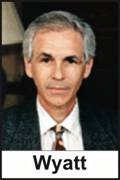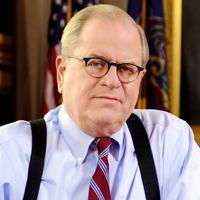Rascals case in brief
In the beginning, in 1989, more than 90 children at the Little Rascals Day Care Center in Edenton, North Carolina, accused a total of 20 adults with 429 instances of sexual abuse over a three-year period. It may have all begun with one parent’s complaint about punishment given her child.
Among the alleged perpetrators: the sheriff and mayor. But prosecutors would charge only Robin Byrum, Darlene Harris, Elizabeth “Betsy” Kelly, Robert “Bob” Kelly, Willard Scott Privott, Shelley Stone and Dawn Wilson – the Edenton 7.
Along with sodomy and beatings, allegations included a baby killed with a handgun, a child being hung upside down from a tree and being set on fire and countless other fantastic incidents involving spaceships, hot air balloons, pirate ships and trained sharks.
By the time prosecutors dropped the last charges in 1997, Little Rascals had become North Carolina’s longest and most costly criminal trial. Prosecutors kept defendants jailed in hopes at least one would turn against their supposed co-conspirators. Remarkably, none did. Another shameful record: Five defendants had to wait longer to face their accusers in court than anyone else in North Carolina history.
Between 1991 and 1997, Ofra Bikel produced three extraordinary episodes on the Little Rascals case for the PBS series “Frontline.” Although “Innocence Lost” did not deter prosecutors, it exposed their tactics and fostered nationwide skepticism and dismay.
With each passing year, the absurdity of the Little Rascals charges has become more obvious. But no admission of error has ever come from prosecutors, police, interviewers or parents. This site is devoted to the issues raised by this case.
On Facebook
Click for earlier Facebook posts archived on this site
Click to go to
Today’s random selection from the Little Rascals Day Care archives….
Click for earlier Facebook posts archived on this site
Click to go to
Today’s random selection from the Little Rascals Day Care archives….
Forensic evaluator or therapist? A distinction not made
 March 23, 2012
March 23, 2012
“A given professional must undertake either a forensic examination or therapy, not both, with any given child.
“The roles of forensic evaluator and ongoing therapist are different. The forensic evaluator must not become an advocate for the child, a role often difficult to avoid when one is an ongoing therapist.
“For this reason the American Psychological Association’s Guidelines for Psychological Evaluations in Child Protection Matters (1999) holds, ‘Psychologists generally do not conduct psychological evaluations in child protection matters in which they serve in a therapeutic role for the child or the immediate family or have had other involvement that may compromise
their objectivity.’ ”
– From “A Behavior Analytic Look at Contemporary Issues in the Assessment of Child
Sexual Abuse” by W. Joseph Wyatt in The Behavior Analyst Today (March 22, 2007)
By serving enthusiastically as agents of the prosecution, Betty Robertson, Judy Abbott, Susan Childers and Michele Zimmerman not only ignored that crucial ethical distinction, but also fostered psychological havoc where there had been none.
Court finds Hart’s ploy ‘grossly improper’
March 16, 2012
“The appeals court called a maneuver (in Dawn Wilson’s trial) by the chief special prosecutor, Bill Hart, ‘grossly improper.’
“The judges found that Hart had tried to impugn the reputation of Wilson by placing in the courtroom audience two people whose presence was likely to intimidate Wilson.
“Hart never called the pair as witnesses, but… by his actions had implied to Wilson that he intended to use the two people against her in a way that might result in self-incrimination.”
– From the (Norfolk) Virginian-Pilot, May 3, 1995
In 1995 the N.C. Court of Appeals overturned her conviction. And then of course the prosecutors rushed to apologize to Dawn Wilson for their disgraceful vilification.
‘A personal mission to have Bob put behind bars’
 June 14, 2015
June 14, 2015
Long after Bob Kelly reclaimed his freedom, he continued to fear that prosecutor Nancy Lamb was searching for yet another excuse to send him back to prison.
His apprehension was entirely reasonable.
In 1996, less than a year after the North Carolina Court of Appeals overturned Kelly’s conviction in the Little Rascals case, Lamb had had him indicted on a new round of sex charges, supposedly unrelated and transparently dubious.
According to correspondence I recently happened onto, a lawyer who attended a scheduling conference for Kelly’s upcoming trial was startled by Lamb’s unprofessional demeanor:
“It was very obvious… that Nancy is on a personal mission to have Bob put behind bars for something. Her voice and her hands were noticeably shaking throughout the meeting and at times she wiped moisture from her eyes.
“I just don’t see how she can go through an entire trial without exposing to the jury this ‘witch hunt’ mentality that has consumed her….”
For whatever reason – she claimed, as usual, to be looking out for the ‘victim’ – Lamb’s decade-long pursuit of Bob Kelly ended anticlimactically. She dropped the last charges in 1999.
Prosecutorial arrogance – it’s forever!

news.psu.edu
Ronald Castille
March 1, 2016
“It would be hard to imagine a more glaring judicial conflict of interest than the one the Supreme Court considered in a case out of Pennsylvania on Monday.
“In 1986, Terrance Williams was convicted of killing a man named Amos Norwood with a tire iron when he was 18. Prosecutors in the Philadelphia district attorney’s office sought the death penalty, and got it….
“A state court found that the prosecutors had lied, and vacated Mr. Williams’s sentence. But the Pennsylvania Supreme Court unanimously reversed that ruling. The court’s chief justice at the time, Ronald Castille, wrote a concurring opinion criticizing the lower court’s ruling for ‘condemning’ the prosecutors.
“The problem was that Mr. Castille himself led the district attorney’s office when it prosecuted Mr. Williams, and personally authorized seeking the death penalty in that case…. Nevertheless, he refused to recuse himself from Mr. Williams’s case….”
– From “Should a Judge Rule on His Own Case?” editorial in the New York Times (Feb. 29)
Meanwhile in North Carolina, prosecutors yet again show great interest in maintaining their conviction rate and little if any in ensuring justice has been done (text cache).
![]()










0 CommentsComment on Facebook